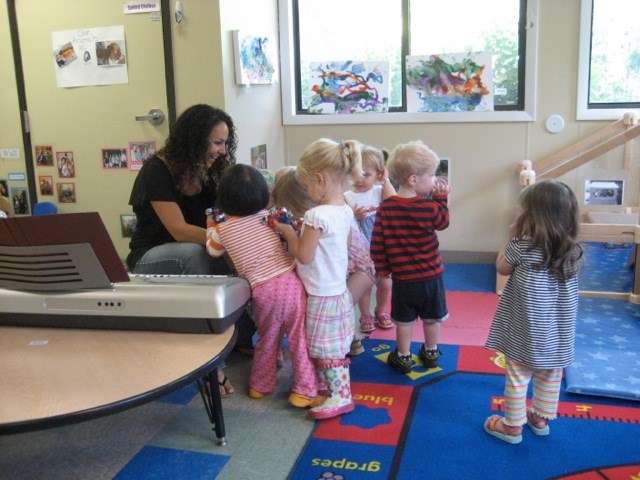Music with Lacey
- According to the most recent scientific knowledge, musical activity involves nearly every region of the brain and nearly every neural subsystem.
- In a 1999 Columbia University study, students in the arts are found to be more cooperative with teachers and peers, more self-confident, and better able to express their ideas.
- Students with good rhythmic performance ability can more easily detect and differentiate between patterns in math, music, science and the visual arts.
- Music is unique to humans and as basic as language to human development and existence. Through music, children gain insight into themselves, others, the world around them, and life itself.
- The amount of musical potential each child has is directly and greatly influenced by the musical exposure, experience and encouragement he receives from birth through age nine.
- "Music is a more potent instrument than any other for education, because rhythm and harmony find their way into the inward places of the soul."--Plato
